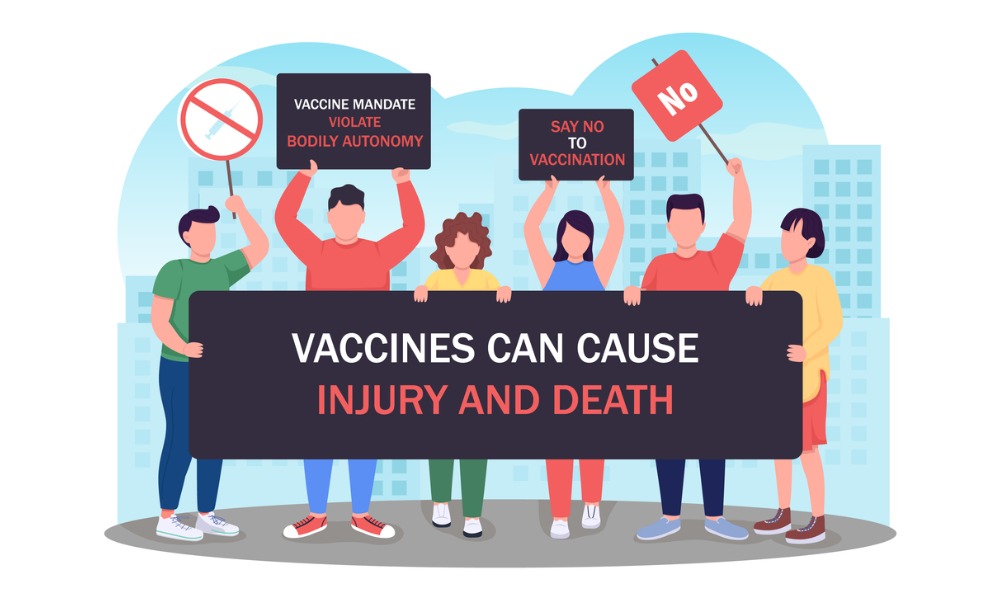
'It's difficult to imagine a more serious case of misuse of social media,' says employer

The Industrial Relations Commission (IRC) of New South Wales (NSW) recently dealt with a worker’s claim that she was unjustly and unfairly dismissed by her employer after joining a protest and posting it on social media afterward.
The worker served as a paramedic at the Ambulance Service of NSW. Her employment was terminated due to her participation in an "anti-lockdown" protest and live streaming of the event.
She applied to the Commission for reinstatement.
Background of the case
In January 2005, the worker started her career with NSW Ambulance as a trainee paramedic. After completing her training in July 2011, she continued her education and obtained a Bachelor of Paramedicine from the Australian Catholic University in 2018.
On July 13, 2021, she received instructions to self-isolate due to a public health order. The directive was a result of her exposure to a confirmed COVID-19 case on the same day.
During this period, she was required to remain in isolation for 14 days and could only leave her residence for testing purposes. A representative from NSW Ambulance had an interaction with her on July 20, where she affirmed her understanding of being classified as a close contact and agreed not to go outside her home except for essential testing requirements.
However, on July 24, amid the COVID-19 lockdown in the Greater Sydney region, there was an organised protest rally held in Sydney CBD.
She decided to go to the protest despite not originally planning to do so. She said joining the rally came from supporting her husband's business which had been adversely affected by the state’s order.
When the worker was at the protest rally, she publicly live streamed herself via TikTok using an account that clearly identified her as a paramedic. Multiple forms of evidence, including video footage and audio recordings proved her participation.
Later, the worker called her supervisor. She informed him that she had “fucked up," and explained her participation in the protest. She informed the supervisor that she had “uploaded stuff to [her] TikTok account and that someone [had] taken it upon [themselves] to share it all over Twitter.”
Misconduct allegations
The rally that the worker participated in garnered media attention, but it also brought complaints from members of the public and fellow paramedics to NSW Ambulance. In fact, several individuals took their concerns about the worker’s conduct to the police.
Consequently, she faced charges under the Public Health Act 2010 for failing to follow relevant public health orders. On July 19, 2022, she pleaded guilty.
The local court decided not to record a conviction and instead imposed a conditional release order for a period of 12 months.
While an investigation into her actions was conducted by NSW Ambulance, she was initially suspended with pay. However, after learning that her registration as a health practitioner had been suspended by the Paramedicine Council of NSW, she was then suspended without pay.
NSW Ambulance then filed seven allegations of misconduct against her, four specifically related to her behaviour at the rally, which allegedly violated the employer’s policies.
The worker’s TikTok comments
According to records, the worker said the following statements during her TikTok live at the protest:
After an investigation and notice to the worker, her employment was consequently terminated.
HRD previously reported about the decision of an employer to dismiss an employee over his Facebook posts despite the latter’s claim that he is “speaking truth to power.”
The posts variously applauded violence against a police officer, mocked domestic violence, expressed racist sentiments, vilified transgender and transexual persons and used language that was homophobic.
The Commission’s decision
In its decision, the Commission noted that “at the time she attended the protest, she was required to self-isolate under the Self-Isolation Order.”
“The evidence is clear that she was aware of this obligation but chose to ignore it,” the IRC said. The Commission said that even though “she felt it necessary to support her husband by attending the protest on 24 July 2021; it does not explain her decision to livestream the event, much less the damaging and offensive commentary which she offered to accompany it.”
Additionally, the employer emphasised that “you do not need a policy to know that what [the worker] did was wrong.”
“[I]t is difficult to imagine a more serious case of misuse of social media,” it said. Thus, after considering all factors, the Commission ruled that the worker’s dismissal wasn’t harsh or unreasonable.